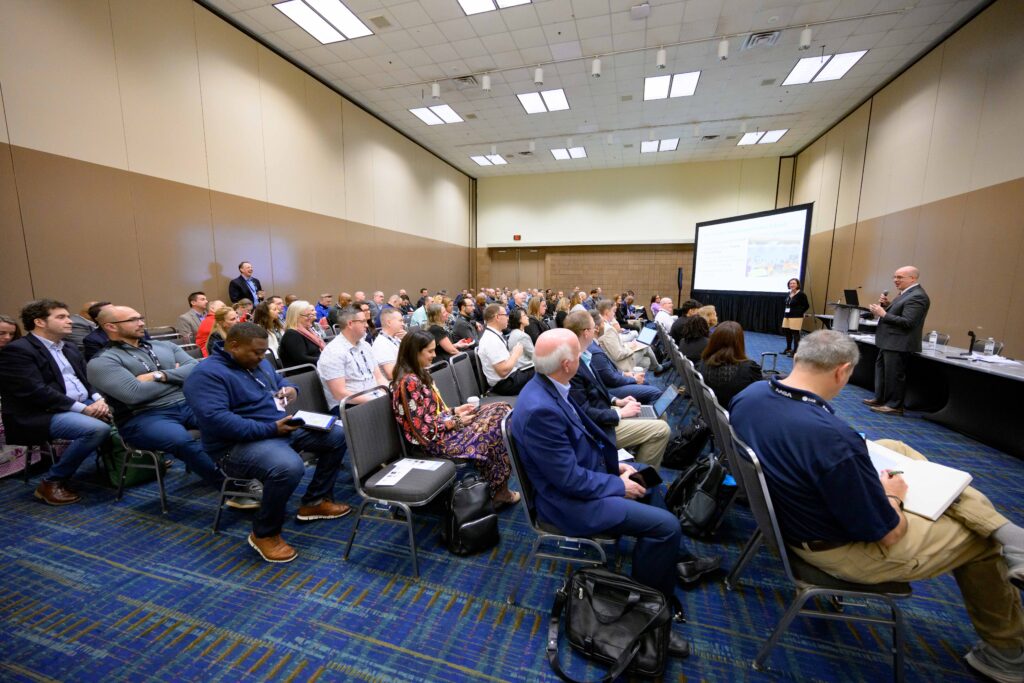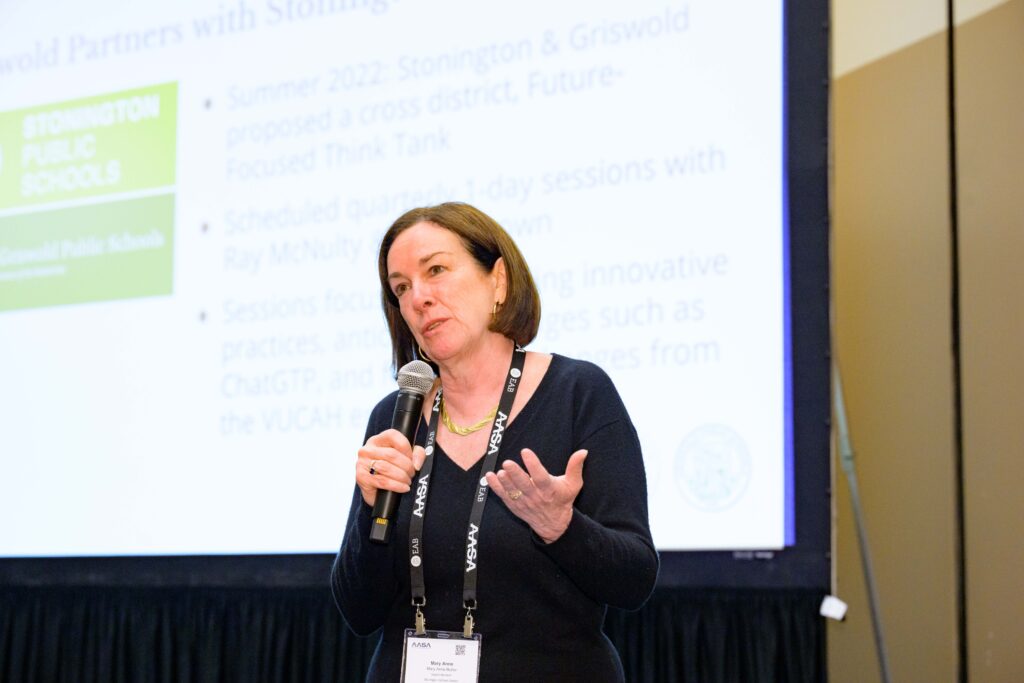“Students have been cheating forever.”
If you were fearing the takeover of artificial intelligence in classrooms, two AASA conference presenters’ remarks might be reassuring.
In a session Friday titled “Embracing the Future: Navigating the New Frontier of AI in Education with Integrity and Innovation,” Sean McKenna and Mary Anne Butler reminded their audience that innovation is nothing new. AI is a part of a larger future-focused approach that educators need to embrace, they said.
The two took turns in reassuring the audience that AI is here to help, not harm students. “We believe AI is a collaborative median.” McKenna said.
As superintendent of Griswold Public Schools in Griswold, Conn, McKenna oversees the implementation of AI in his district’s classrooms. He spoke of the student-teacher cohesion in their views of AI.
Butler, who serves as superintendent of Stonington Public Schools in Stonington, Conn, insisted AI is a tool that will provide a helping hand to teachers. No more photocopying practice questions or looking for English lessons to go over sentence structure will be needed as AI does all that, he said.
To gauge where the audience stood on AI, the presenters had everyone play a game where they were given prompts of changes AI could make in education, young people and the world. On a graph lay an X axis of probability and a Y axis of impact. Groups were asked to guess where they thought these scenarios would be along the graph. Many groups rated the possible changes AI could force to be both highly impactful and probable showing a hidden belief that many are ready to embrace AI.
McKenna and Butler addressed concerns over integrating AI with a proprietary education company. These firms typically provide guardrails against potentially biased answers that chatbots may generate. This, the two leaders said, allows for AI tools to be implemented with a form of accountability.
With no reason to fear AI, school leaders need to get their communities to embrace its presence.
“I’m talking about everybody — the board of education, students and parents,” McKenna said. “It’s important to have an AI policy, but it’s also great to do something with the parents and the community.”
(Mohammad Tantawi, a senior journalism major at Louisiana State University, is a reporter with Conference Daily Online.)



